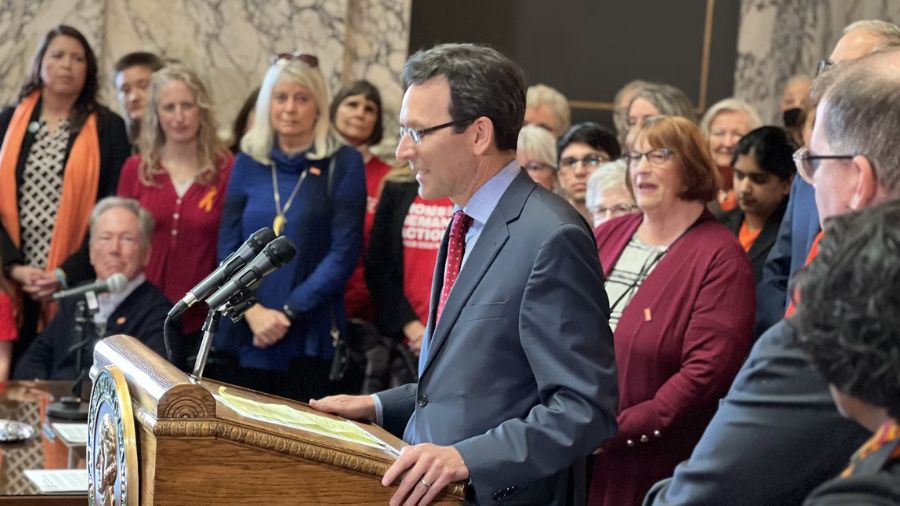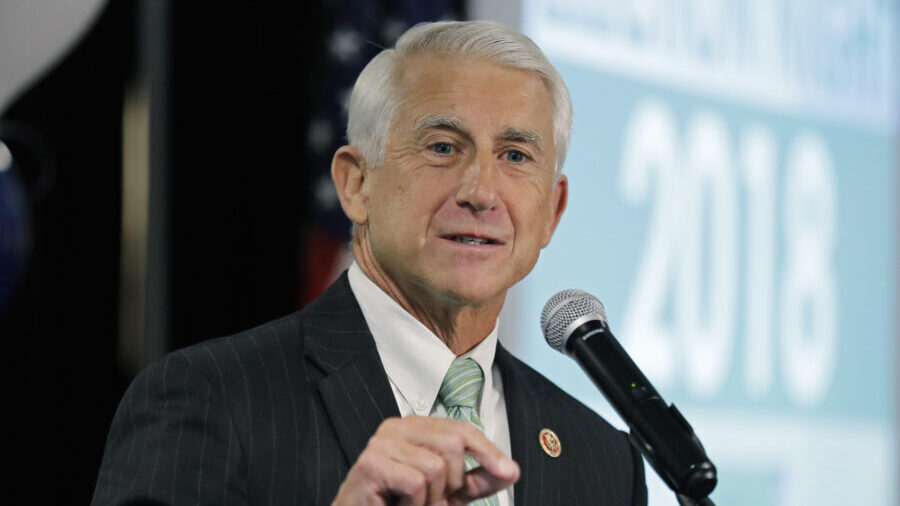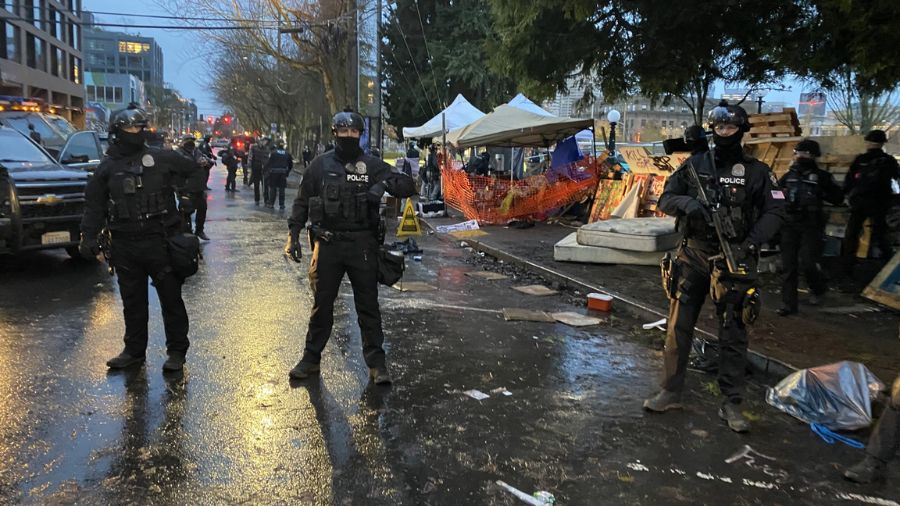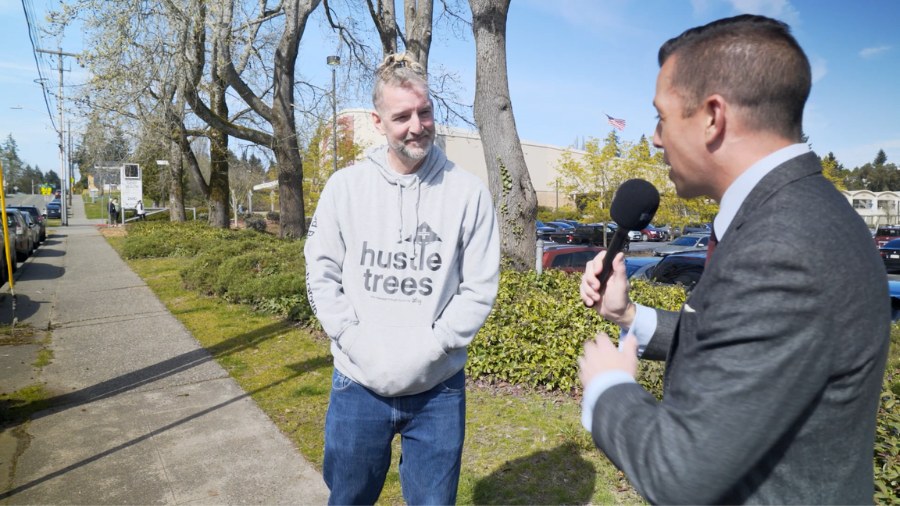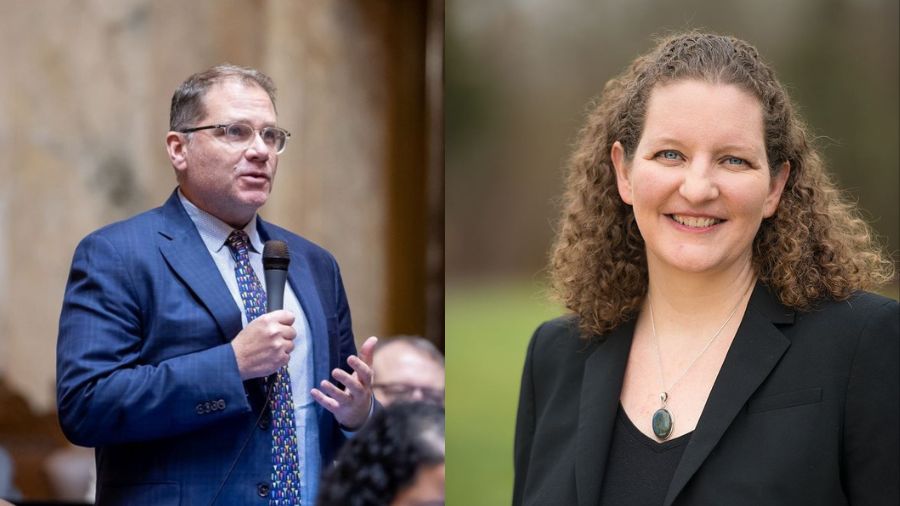Report suggests Seattle’s Democracy Vouchers are a bust
May 2, 2018, 6:58 AM | Updated: 8:57 am

A Seattle democracy voucher. (AP Photo/Ted S. Warren, File)
(AP Photo/Ted S. Warren, File)
In a just-released city report analyzing Seattle’s first-of-its-kind Democracy Vouchers program, there was much left to be desired. In fact, the program has failed many of the city’s stated goals and independent expenditures increased. This, despite two liberal, pro-vouchers groups declaring last year that the program, whose campaign they helped fund, has been a success.
Under the program, Seattle voters are given $100 in taxpayer-subsidized vouchers to offer to eligible candidates. In November 2017, the pro-voucher Win/Win Network and Every Voice Center, citing their own analysis, as “achieving its intended goals by … diversifying the makeup of campaign supporters to better reflect the people of Seattle, and limiting the reliance on big money in local elections.” They’re wrong on both points.
The report, compiled by a consulting firm for Seattle’s Ethics and Elections Commission, the agency that administers the program, offers a depressing look at the voucher program.
According to the report, while more than 20,000 used their vouchers, significant disparities remain in which voters actually use the vouchers. In fact:
“…some residents were more likely to use their vouchers than others. These include people who are regular voters in local elections, older residents, those who live in majority-white neighborhoods, and those who live in upper-income neighborhoods. As a result, residents of neighborhoods that are lower income or have a majority non-white population continue to be under-represented among contributors to candidates for local office.”
So, in other words, wealthy white people were using the subsidies to influence elections, even though they could afford to make donations using their own money. The report states it is “a counter-intuitive finding given the program’s goal of increasing the diversity of residents who can have influence as contributors to local elections.”
Further, the city report says voucher users “are less likely to be women, [and] less likely to be young (age 18-34).” This is in stark contrast to Win/Win and Every Voice Center data that falsely claimed: “Democracy Voucher donors better reflected Seattle’s population including young people, women, people of color, and less affluent residents.”
It gets worse.
Arguably, the biggest promise from voucher proponents was that it would take big money out of elections. It spectacularly failed to do so. In fact, the system ended up encouraging outside groups to spend money on elections, taking advantage of the candidates who were relying on the vouchers. The report concludes:
“Writers of the DVP [Democracy Voucher Program] legislation had hoped that the program design would provide an incentive for both candidates and funders of independent expenditures to keep their combined campaign spending below the DVP campaign spending limit. However, candidates in the City Attorney and City Council position 8 races applied to be released from spending and contribution limits when their opponent’s campaign spending plus independent expenditures exceeded the DVP spending limit. This enabled the increase in total campaign spending as well as a 55% increase in independent expenditures by candidates for the two at-large City Council positions compared to 2015.”
Yikes. They also suggest the program has a major loophole that can be exploited for nefarious purposes by candidate’s opponents (see pages 20-21).
Though the program is meant to encourage more candidates to run, and indeed, the candidates felt encouraged, they struggled to actually qualify for the public funding, unable to meet the requirements that they earn just 400 verified contributions of $10. The report argues the program isn’t streamlined enough to be candidate-friendly. Perhaps that’s why Sheley Secrest, who ran for Position 8 on the City Council last year, allegedly tried to cheat the system. City Attorney Pete Holmes, as predicted, agreed to drop the charges against Secrest if she completes community service hours.
The report offers several recommendations on how to fix the program, so they don’t think it’s beyond repair. But, so far, when you judge it by its intent, the program has been a huge bust.



